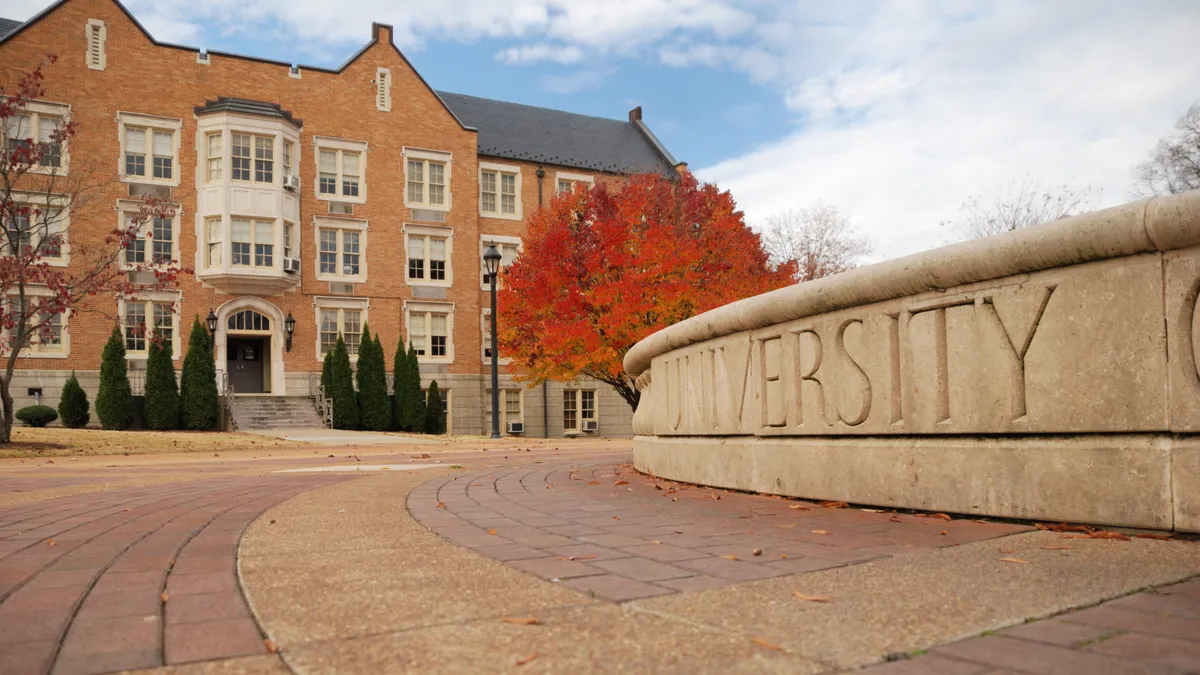Dive Brief:
-
Students at Drexel University and the University of Miami have sued their respective institutions for tuition and fee refunds, claiming they paid for services and in-person instruction, which are no longer being provided because of the coronavirus pandemic.
-
Other lawsuits have emerged accusing colleges of improperly withholding refunds for housing, meals and other expenses, but these are the first legal challenges concerning tuition reimbursement.
-
Institutions have largely resisted returning tuition because they continued instruction remotely, and said even giving back room and board money would stress their already precarious budgets.
Dive Insight:
After the coronavirus was detected in the U.S. more than a month ago, most colleges emptied dormitories and shifted instruction online. Many institutions said they would refund some or all room and board costs, but not tuition, because classes continued digitally.
But the twin federal lawsuits, which seek class-action status, claim students are being deprived of the advantages of a campus-based experience.
The students paid for face-to-face interaction with professors and peers, as well as access to extracurricular activities, academic facilities and networking opportunities, the lawsuits state. Because the universities are no longer offering these benefits, they are breaking their contract with tuition-paying students, the lawsuits allege.
It's a weak argument, said Michael Olivas, a higher education law expert and former professor at the University of Houston. The students are asserting a level of educational malpractice that isn't happening, Olivas told Education Dive, noting that had the universities halted coursework altogether, they might have a better legal standing.
While institutions made some "obvious compromises" to move instruction and other services online as quickly as possible, "there have been good-faith efforts with transformative investments in distance education," he said, adding that paying tuition doesn't entitle students to a fancy classroom or in-person instruction.
Students nationwide are petitioning for tuition refunds out of dissatisfaction with online instruction. One recent survey suggests students prefer in-person classes to remote learning. Yet colleges have largely been applauded for managing the unexpected transition online, though some have had difficulty replicating science labs or other hands-on lessons.
Drexel, in Pennsylvania, declined Education Dive's request for comment on the lawsuits. Jacqueline Menendez, vice president for university communications at the U of Miami, said the Florida university is aware of the litigation but declined to comment further.
Other lawsuits, such as one against the Arizona Board of Regents, have demanded room and board refunds.
One such complaint against Liberty University, which was filed this week, attracted more attention to the Christian institution's controversial response to the coronavirus. Jerry Falwell Jr., the university's president and prominent evangelical figure, infuriated the campus and general public by defying national trends and inviting students back to residence halls following spring break.
The potential class-action lawsuit from an anonymous Liberty student alleged it is profiting from the pandemic. Though many services on campus remain ostensibly closed, or significantly reduced, the university hasn't returned most student fees. It only offered a $1,000 credit for the fall 2020 semester to some students who decided not to move back into their dorms, according to the lawsuit.
In a statement emailed to Education Dive, Liberty similarly accused the attorneys who are backing the lawsuit of taking advantage of a global health crisis and said the case lacks legal merit.
Liberty attributed the changes in its operations to government mandates, "a fact the complaint omits," the statement reads.
"That fact legally excuses Liberty's adjustments and leaves the plaintiffs without a legal case," it continues.








